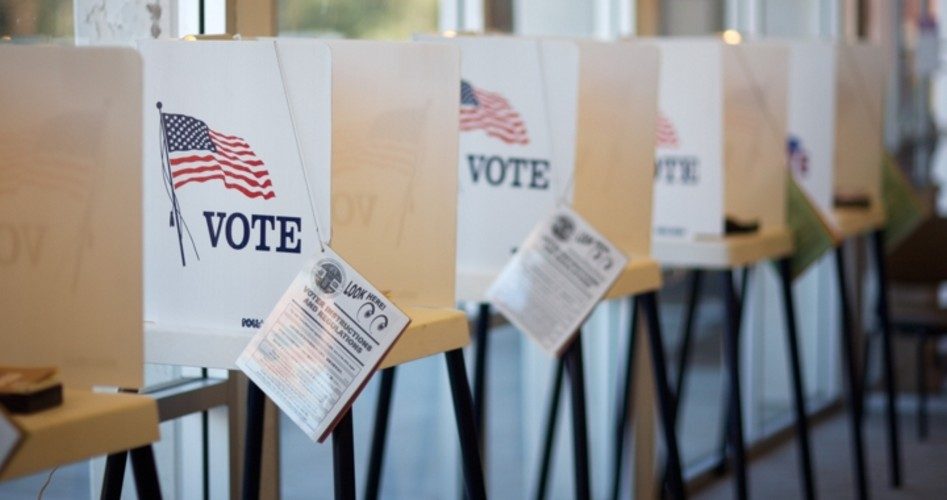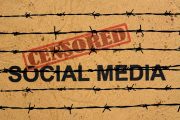
What started as news articles reporting potential danger to American elections from Russian hackers has quickly morphed into a call for a federal agency to protect our elections from those alleged Russian hackers. But many of the threats cited have nothing to do with the Internet, and giving blanket protective authority to a federal agency would grant broad powers far in excess of what the U.S. Constitution allows.
On July 27, the Washington Post carried an article by Bruce Schneier entitled “By November, Russian hackers could target voting machines.” Schneier detailed numerous security weaknesses in America’s electoral computer systems, and pointed to the lack of a voter-verified paper audit trail (VVPAT) in many computerized voting machines. Schneier also wisely emphasized that our elections should have “no Internet voting.” He will get no argument from The New American on those assertions, as this magazine has been voicing many of these concerns for years, and was the first national publication to advocate for a paper trail in electronic voting equipment in our October 13, 1986 issue. Additionally, in our October 9, 2000 issue, we published an article entitled “Voting on the Web” that warned of the dangers of Internet voting. The New American has since published numerous similar articles.
However, one portion of Schneier’s article would errantly lead many to believe that the states caused the problems and the federal government should be called in for the rescue: “But while computer security experts like me have sounded the alarm for many years, states have largely ignored the threat, and the machine manufacturers have thrown up enough obfuscating babble that election officials are largely mollified.”
Schneier is correct in pointing out that many states, especially in recent years, have been major factors contributing to the decline of American election integrity. But it hasn’t always been that way. This Republic was founded under the U.S. Constitution with competition by the states to do a better job at running elections. As late as 1994 some of that constitutional competitive spirit was still alive as New Hampshire enacted the nation’s first paper trail law. In 1986 New Hampshire and North Dakota led the way in stopping the use of punch card voting systems. That was 14 years before the infamous 2000 presidential election fiasco in Florida where the nation witnessed all manner of partially punched chads and learned of myriads of other security problems in punch-card voting systems.
Amazingly, during the news coverage of the Florida fiasco, the liberal news media virtually ignored the fact that two states had stopped using punch-card voting systems for security reasons 14 years prior. Nor did the liberal news media question why the voting officials in other states didn’t react to the actions taken by New Hampshire and North Dakota by making informed decisions regarding whether those two states had it right or had it wrong. They had 14 years to think about it. Nor did the liberal news media ask similar questions of the vendor companies asking them how they could continue selling the punch-card voting equipment for 14 years knowing they couldn’t sell their equipment in two states owing to security concerns.
In addition to states causing problems with voting security, many of today’s election security weaknesses can be traced to unconstitutional (as well as unwise) actions at the federal level. It was Congress that passed the National Voter Registration Act of 1993, aka “Motor Voter,” which ordered all 50 states to weaken the security of voter registration lists. It was Congress that passed the Help America Vote Act of 2002 (HAVA), which was the vehicle by which the states were forced to buy HAVA-compliant electronic voting equipment. As the states rushed to meet the HAVA deadlines, most states purchased equipment that didn’t have a voter-verified paper trail. It was Congress that sneaked the following dirty tricks into the National Defense Appropriations Act for Fiscal Year 2010 as a rider, stating, “The Presidential designee may establish 1 or more pilot programs under which the feasibility of new election technology is tested for the benefit of absent uniformed services voters and overseas voters claiming rights under the Uniformed and Overseas Citizens Absentee Voting Act.”
The rider also stated:
the Presidential designee may consider the following issues:
(1) The transmission of electronic voting material across military networks.
(2) Virtual private networks, cryptographic voting systems, centrally controlled voting stations, and other information security techniques.
(3) The transmission of ballot representations and scanned pictures in a secure manner.
(4) Capturing, retaining, and comparing electronic and physical ballot representations.
(5) Utilization of voting stations at military bases.
A quick review of this rider shows numerous violations of the U.S. Constitution, including having the federal government implement Internet voting and unconstitutionally empowering the president to appoint the manager in charge of the computer systems. If there are concerns that Russian hackers are now capable of penetrating our election computers, why aren’t the fear-mongers such as Senator Thomas Carper (D-Del.) calling for holding President Obama and his presidential designee responsible for not having done these things “in a secure manner,” as the law foolishly assumed could or would be done, rather than calling for the Department of Homeland Security to get involved in an activity for which there is no constitutional authority at the federal level?
Senator Carper wrote a letter to Department of Homeland Security Secretary Jeh Johnson asking the federal agency to get involved in protecting our elections from foreign hackers. If Senator Carper really wants to find the cause of the security weaknesses that have been put into our elections, he can start by proceeding to the nearest mirror and look at himself. Senator Carper has been in office since 2001. He voted for both the Help America Vote Act of 2002 and the NDAA for Fiscal Year 2010, two aforementioned bills that established heavy-handed actions by the federal government that reduced the integrity of our elections.
In light of all this, why pretend the dangers to our elections are either solely or predominantly from Russian hackers? Only a few states even make public how many votes are cast using the Internet, but most experts agree that only a small number of votes are cast in such a manner. There is, however, a real danger of Internet-based election fraud in those states that allow Internet voter registration. But that has been going on for a few years now, and fraudulent voter registrations via the Internet are obviously not solely the fault of Russian hackers. The solution to Internet voter registration is obvious: Stop all Internet voter registration and stop frustrating civic-minded groups such as True The Vote from verifying voter registration lists.
Much of this sudden concern for Russian hackers is a political football that started when Republican Presidential Candidate Donald Trump made some political hay regarding Hillary Clinton’s loose handling of classified information in her e-mails when he said, “Russia, if you’re listening, I hope you’re able to find the 30,000 emails that are missing.” Many Democrats have responded by trying spin that statement into some sort of political alliance between Donald Trump and Russia.
The fact that our elections have seen security eroded, in some cases seriously, is real, but Russian hackers are not the primary source of the problems, and a federal takeover of our elections is not the answer. The federal government is the cause of many of our election integrity problems, and the correct solution would be to get the federal government to undo the damage it has done rather than unconstitutionally increase its role.
Would the presidential designee who was appointed by authority of the NDAA for 2010 please identify himself or herself and explain why the “in a secure manner” clause hasn’t been adequately addressed? As an aside, if President Obama really wants to do something about electoral fraud, he should start in Chicago.


